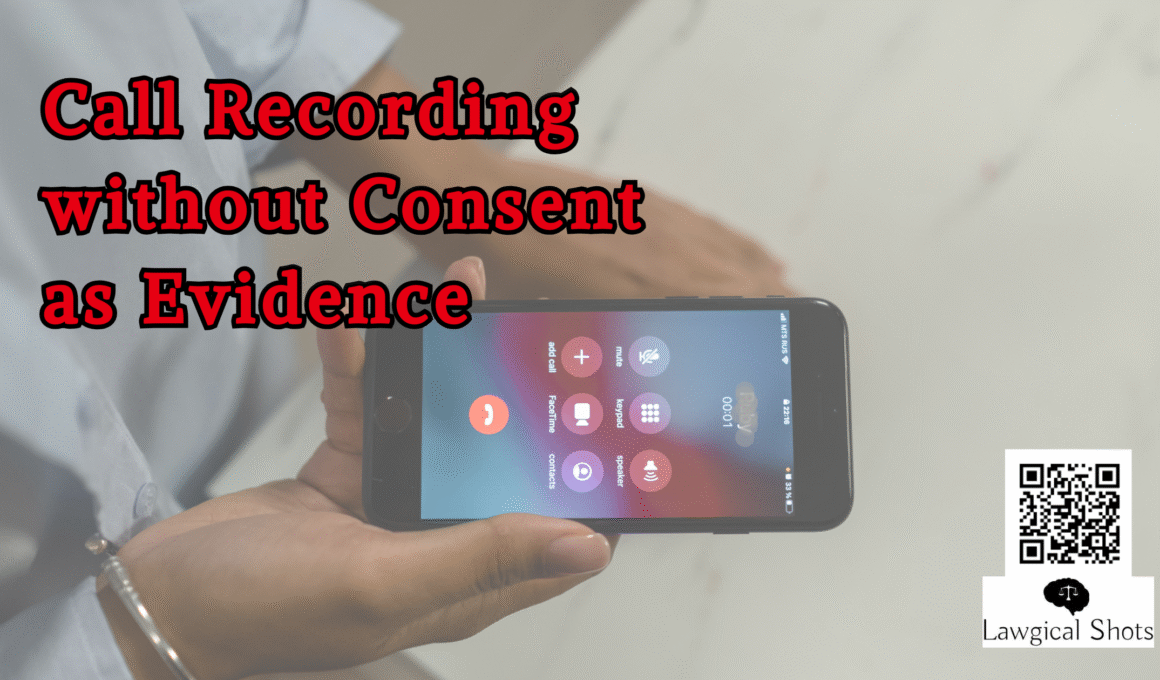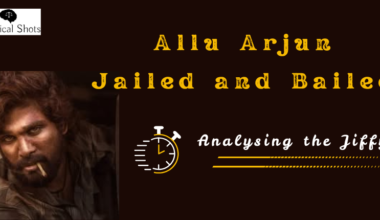You are a husband in India, and your wife is habitual of using abusive language against you, your personality, your sexuality, everything – in private and public. Thanks to digital advancements, you can record this filthy behaviour. But now that you have filed a divorce case for cruelty and presented the video and call recordings to prove that you are a victim and need to end the marriage, the Court says this evidence is not acceptable. The reason, your wife’s right to privacy. But what about your right to fair trial, to prove your case? Courts have had different opinions on admissibility of call recording without consent in evidence, there is a recent update by the Supreme Court which brings some relief. To understand better, let’s have a look at the Courts’ views on secret call records and other electronic evidence.
Right to Privacy v. Call Recording without Consent
Certain Family Courts by law are bound to protect the privacy and dignity of parties. The reason is obvious, that people’s personal lives are a matter of dispute and evidence in Family Courts. If everything is on record, it would hamper personal lives in an irreparable manner. However, there are two sides of the coin…always! Family Courts are meant to deal with people’s personal lives. While one spouse’s privacy may be at stake, the other spouse is still required to prove his/her case in the Court. While dealing with this tug of war regarding admissibility of evidence, the High Courts have had their own opinions until the recent Supreme Court judgment in Vibhor v. Neha came.
Right to Privacy upheld against Call Recordings
In India, High Courts have been of the view that recorded conversations between a husband and a wife cannot be made the basis for deciding a divorce case under Hindu Marriage Act. They view it as a violation of the privacy of the other spouse. Given below are the views of High Courts regarding call recording without consent.
Punjab and Haryana High Court
- In this very case of Neha v. Vibhor Garg, the High Court denied acceptance of secretly recorded calls as evidence in a divorce case. The Court sought to give more importance to the wife’s right to privacy over the husband’s plea to accept conversations which were secretly recorded.
- In Deepinder Singh Mann v. Ranjit Kaur (2014), the High Court cautioned against allowing electronic evidence against a wife in matrimonial cases. The Court expressed that “A married woman too has a valuable right to her privacy of speech with her husband in the confines of the bedroom. Couples speak many things with each other unwary that every word would be weighed one day and put under the judicial scanner. Courts should be very circumspect in such matters before allowing such applications….”
Delhi High Court
Deepti Kapur v. Kunal Julka (2020) was yet another case where wife’s right to privacy was upheld as against husband seeking admission of call recording without consent as evidence in Family Court. The Court expressed that “Marriage is a relationship to which sanctity is still attached in our society. Merely because rules of evidence favour a liberal approach for admitting evidence in court in aid of dispensation of justice, this should not be taken as approval for everyone to adopt any illegal means to collect evidence, especially in relationships of confidence such as marriage. If the right to adduce evidence collected by surreptitious means in a marital or family relationship is available without any qualification or consequences, it could potentially create havoc in people’s personal and family lives and thereby in the society at large.”
Andhra Pradesh High Court
The High Court in Rayala M. Bhuvaneswari v. Nagaphanender Rayala (2007) viewed that husband tapping wife’s conversation with others was illegal and infringed her right of privacy. The Court therefore refused to admit the tape recordings as evidence in divorce proceedings.
Rajasthan High Court
The Court dealt with a similar question of call recording without consent or knowledge in Vishal Kaushik v. Family Court (2015). While denying admissibility of call recordings against wife, the Court opined that “husband cannot be, in the name of producing evidence, allowed to wash dirty linen openly in the Court proceedings so as to malign the wife by producing clandestine recording of their conversation.” The Rajasthan HC concurred with Andhra HC’s view in Rayala case.
Madhya Pradesh High Court
The Court in Anurima v. Sunil Mehta (2015) noted the conversation of wife with another recorded by her husband without consent. The Court ordered that the tape recordings could not be admitted in evidence, but could be kept on record.
Call Recording Without Consent Admissible
Rajasthan High Court
In a first, the Court in Preeti Jain v. Kunal Jain (2016) upheld the Family Court’s power to allow evidence for adjudication, as against the privilege to conversation between husband-wife. Therefore, the Court dismissed wife’s challenge against admission of husband’s electronic evidence. The husband sought admissibility of evidence recorded through and saved in a pinhole camera, hard disk memory, 3 CD/ DVDs video recording, mobile messages, CD/ DVD.
Karnataka High Court
In Kethana Lokesh v. Rahul R. Bettakote (2024), the matter pertained to audio recording of conversation between fathers of husband and wife. The Court held that such audio recording was admissible in evidence in divorce case.
Gujarat High Court
Jil v. Priyank Manubhai Choksi (2024) was not a typical divorce case, but that of domestic violence where the wife sought admission of voice recording without consent saved in a CD. The Court held that “under Section 122 of the Indian Evidence Act, 1872, husband or wife cannot claim any privilege of non- disclosure of communication during marriage, in a proceeding filed by one against the another. The communication recorded in the CD would become part of the proceeding under the DV Act.”
Bombay High Court
In Havovi Kersi Sethna v. Mr.Kersi Gustad Sethna (2011), the Court explained that tape recording was admissible as evidence, and that the parties would have the opportunity to prove its accuracy or verify by forensic expert.
Supreme Court Judgment on Call Recording without Consent
Recently, the Supreme Court in Vibhor Garg v. Neha (2025 INSC 829) discussed the admissibility of secret call recordings, etc. in evidence for matrimonial case. The Bench of Justice BV Nagarathna and Justice Satish Chandra Sharma cleared the clouds and settled their stance regarding admissibility of secret call recordings as evidence.
The Bench held that Section 122 of the Evidence Act (Section 128 of BSA) does not touch upon the aspect of right to privacy. It was clarified that Section 122 recognizes the right to a fair trial, right to produce relevant evidence and a right to prove one’s case against a spouse so as to avail the relief sought for by a party. Further explained that “Under the exception, the requirement of taking consent from other spouse before disclosing the communication is done away with.”
Why is the admissibility of Secret Call Recordings needed?
As mentioned earlier and noted by the Courts time and again, the relationship of husband and wife is mostly confined to their bedrooms. If one spouse is treated with cruelty, it mostly happens within the house. If a spouse is living in adultery, that too happens without leaving obvious traces. So if at all the victim spouse collects all the courage to end the marriage, and mutual consent divorce is out of question, the least they can do is collect evidence to prove their case of contested divorce. Now for that, the cheating or abusive spouse would obviously not pose in front of the camera to give consent and then continue with their abusive/adulterous acts. The said evidence has to be collected secretly, without consent or knowledge. If such evidence is not acceptable in the Court of Law, this adds to the misery of an already suffering spouse – by the Judicial System. Therefore, the admissibility of call recording without consent was the need of the hour to somewhat ease the legal battle for spouses in contested divorce.
Conclusion
The Supreme Court judgment on call recording without consent admissible as evidence was much needed. While the High Courts have had their share in protecting the wife’s right to privacy, a husband and wife’s relation is not in public. And since the Indian Legal System for contested divorce runs on fault theory and requires the parties to prove the case against another, evidence is necessary. While one spouse is claiming that the other committed adultery, of course evidence is not easily available. So if one spouse turns a detective and obtains secret call recordings or video records, admissibility in question makes it even more difficult for the spouse who is already suffering. Thus, admissibility of call recording without consent is a welcome step.








